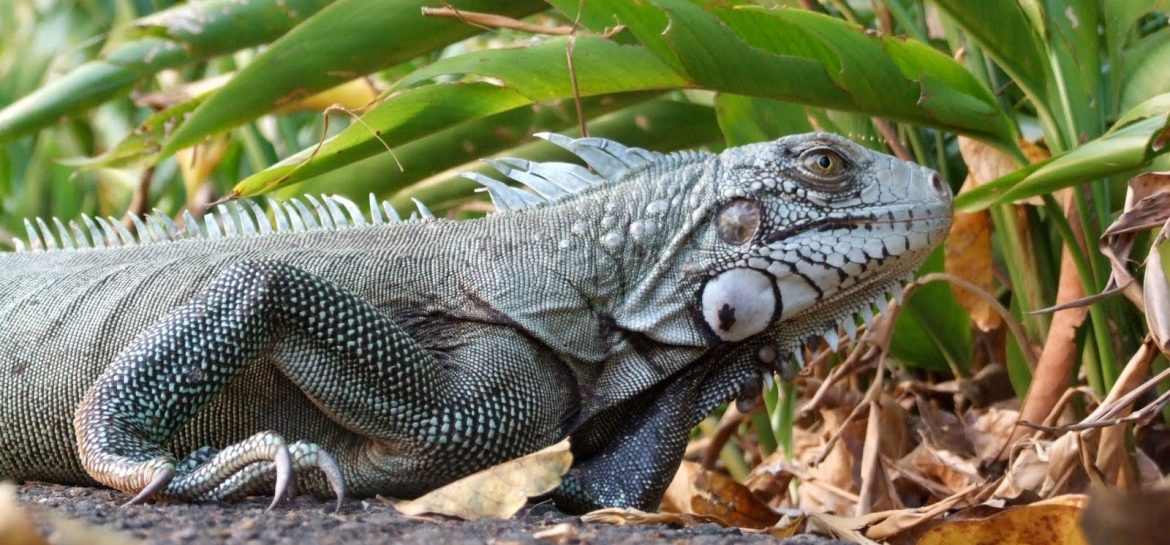Staying Safe In Venezuela – Animals of the Amazon Rainforest
Categories Amazon Rainforest, Caracas, Jungles, Safe Tourism, Safety Abroad, South America, Venezuela
This is part two in my series about staying safe in Venezuela. Part 1 focused mainly on crime and violence in the cities of the North, but what about the wildlife? Here are some of our experiences during our nine months in this gem of a country.
Snakes in Venezuela
In the rain forests of South Venezuela, snakes are plentiful. We spent six months living in a small shack in the middle of the all this and only saw a couple. The majority are only found if you go exploring the thick jungle at night. The most common snake we saw was the Boa Constrictor. Although these get very big, there are not poisonous.
The worst snake we saw was the locals called a “Labaria” (Ferdilance). Although this isn’t the most poisonous, it is the most aggressive and will attack without any provocation. In our time in Venezuela we only saw one of these and even that was only due to the fact that the local villagers showed us.
If you do see any snake, it is worth keeping well away. The medical clinics that stock anti-venoms are few and far between. But don’t let the thoughts of snakes put you off. During our visit, we asked many of the locals who have lived in the rainforest all their lives and not one had ever heard of anyone dying from a snake bite. So use your head and you will be safe.
Ants in the Amazon
Although ants in Venezuela probably won’t kill you, they can inflict a lot of pain. The most widely seen ants are leaf cutting ants which are facininating and won’t hurt you. It really is worth seeing these fascinating creatures. Just one ground can strip every leaf from a tree in just two to three days. Nothing can stop them.
A far worse ant to see is one that the locals call Hormiga Beinti Quatro (litterally translated ant 24). This ant gets it’s name from the fact that one bite can cause extreme pain for 24 hours. These aren’t common and can usually be identified by their shear size
Venemous Spiders in Venezuela
Ah doesn’t everyone love spiders. Just a few days into our first trip to Venezuela, a local pointed at my leg and shouted “Quidado!” (be careful). It turns out the un-be-knownst to me, a tarantula had dropped out of a tree and was drawing up the upper part of my leg.
So yes there are lots of tarantulas in the jungles of Venezuela. There are even tarantulas that kill and eat birds and even one that kills snakes (here’s a link to a youtube video). But most of these won’t kill you. Infact the locals say that a bite from a turantula is no worse then a bee or wasp sting.
There are other snakes though that can be more dangerous, infect some of them are more poisonous then snakes. One problem can be the Brazilian Wondering Spider that likes to hide in small dark places… like shoes! So if you are staying the the jungles or Gran Sabanna, it is a good idea to shake out your shoes before putting them on. In my 9 months in Venezuela, none every crawled into my shoes, but I still wouldn’t take the risk.
Other venemous spiders are less problematic and didn’t cause much of a problem. Infact there was one that set up a web in our shack that we left there as it did lots to keep the mosquito population at bay.
Mosquitos in Venezuela
By far the biggest killer in the world is mosquitos. They carry all sorts of horrible things like Malaria and Dengue fever. If you are going to South Venezuela, it really is worth investing in a good mosquito net (these can easily be purchased in Venezuela) and deat based insect repellant (get these from home before traveling). The type of mosquito that carries malaria is more prevalent after sunset so make sure you are always protected from this time of day onwards. Air Conditioning also seems to be a good repellant of mosquitos although this should not be relied on as the only preventative measure.
Before traveling to Venezuela, my doctor told me that I would get malaria and die if I didn’t take some extremely expensive tablets with me. Some of the locals I knew from Venezuela told me this wasn’t the case and thus I didn’t take any.
Malaria is something that some people do get in Venezuela (especially those who work in the mines there). But everyone knows the symptoms and thus if any of these appear, the first thing you do is go to a clinic and get tested. The clinics are all over the place and thus you are never too far from your nearest one. The test is easy to do and if you do get Malaria, it can be cured by taking tablets. Many people I spoke to who has experienced malaria said it was just like a bad cold. From what I was told, the main key is finding it early and getting it treated.
Malaria is not the only thing mosquitos pass around in South America. If you are going you should make sure you get a yellow fever vaccination. The other prolific illness passed around by mosquitos in Venezuela is Dengue Fever. Although this is not usually deadly, it is not pleasant and needs to be treated if you are unfortunate enough to contract it.
Of-course I am no medical professional and the above is only based on my experiance and the advice of locals in Venezuela. There are plenty of guides and articles on the internet by people much more qualified then me and as with all things related to travel, I do encourage you to research into these things before you travel.
